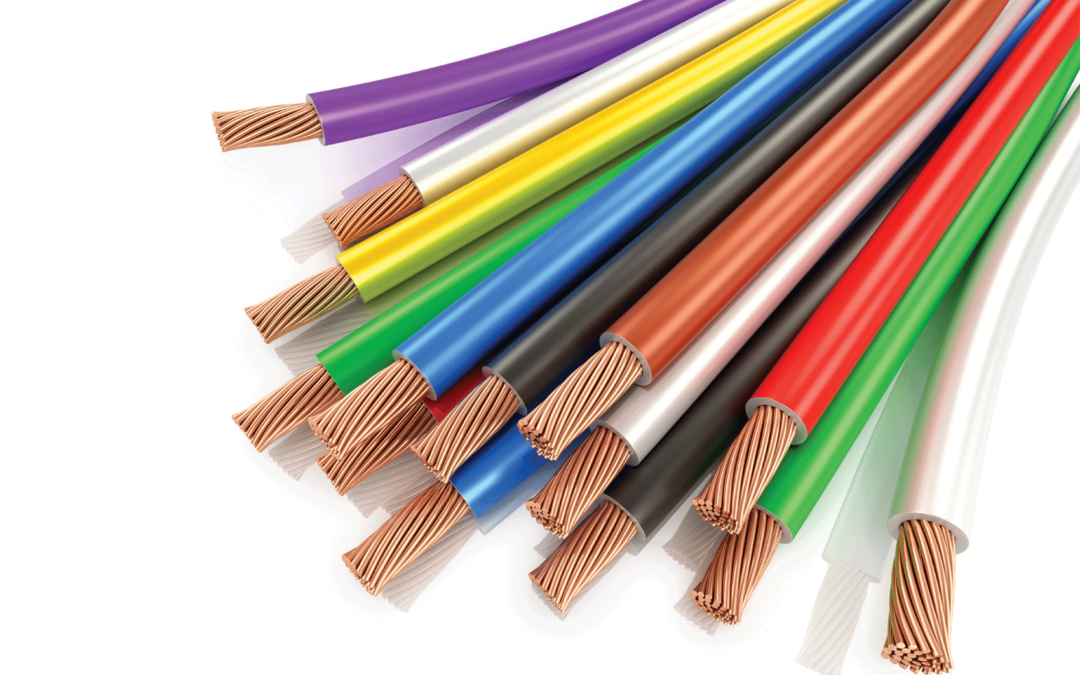Safety, efficiency and durability are top priorities when it comes to wiring a home. Whether you are upgrading your electrical system or building a new home, choosing the best wire for home use is essential for seamless electricity flow and protection from electrical hazards. You can make an informed choice by using this guide to determine which wire types are best suited for residential use.
Understanding the Basics of Home Wiring
Before choosing the right wire, it’s important to understand the key factors that influence your choice:
- Amperage Capacity: The amount of electrical current a wire can safely carry without overheating. Choosing the right wire with sufficient amperage capacity is critical for preventing electrical fire.
- Voltage Rating: The maximum voltage a wire can handle without damaging the insulation. To ensure safety and reliability in the system, different wires are rated for different voltage levels.
- Wire Gauge: The thickness of the wire, measured in gauges. Higher gauge numbers mean thinner wires which carry low electric power, while lower gauge numbers mean thicker wires to carry more electric power.
- Material: Copper and aluminium are two most widely used materials when it comes to wiring. Copper offers excellent conductivity and flexibility, making it ideal for most home wiring, while aluminum is lighter and cheaper but less commonly used today due to safety concerns.
Each of these factors must be carefully considered when selecting wires for any home wiring to ensure safety and efficiency.
Types of Wires for Home Use
Choosing the right type of wire is crucial for ensuring the safety and efficiency of your home’s electrical system. Below are some of the most commonly used wires for residential purposes:
- Non-Metallic Sheathed Cable (NM Cable)
- Best For: Indoor wiring, such as outlets, lights, and switches.
- Description: NM cable consists of two or more insulated wires covered in plastic sheathing. It is commonly used in residential electrical systems due to its versatility.
- Advantages: Affordable, easy to install, and available in various gauges to suit different electrical loads, making it ideal for general home wiring needs.
2. Underground Feeder (UF) Cable
- Best For: Outdoor wiring and underground installations.
- Description: UF cables are built for outdoor use, featuring a tough protective sheath that guards against moisture, sunlight, and harsh environmental conditions.
- Advantages: UV-resistant and moisture-resistant, making them ideal for wiring garden lights, outdoor outlets, and pool equipment, where durability and weather resistance are essential.
3. THHN/THWN Wire
- Best For: Conduit wiring and high-heat environments.
- Description: THHN (Thermoplastic High Heat-resistant Nylon-coated) and THWN (Thermoplastic Heat and Water-resistant Nylon-coated) wires are commonly used inside conduits. They can withstand higher temperatures, making them ideal for kitchens and laundry rooms.
- Advantages: High heat tolerance, available in water-resistant options, versatile for both residential and commercial use.
4. Armored Cable (BX or AC)
- Best For: Areas where extra wire protection is needed, such as basements and garages.
- Description: Armoured cable has a flexible metal sheathing that protects the wires from damage. It is often used in places where wires might be exposed to physical damage.
- Advantages: Offers superior protection, doesn’t require additional conduit for installation.
Copper vs. Aluminum Wiring: Which is Better for Home Use?
- Copper wire is widely used for residential wiring because of its excellent electrical conductivity. Copper efficiently carries electric power with minimum resistance, and its flexibility makes it easier to install in tight spaces. Copper is durable, it resists corrosion, ensuring a long lifespan and reduced risk of electrical failures. This makes copper ideal for standard home wiring, such as outlets, lighting, and appliances.
- Aluminium wire is lighter and more cost-effective, it’s less commonly used indoors due to safety concerns. Aluminium is more prone to corrosion and expands more when heated, which can loosen connections over time. These factors require careful installation to prevent potential hazards like overheating or arcing. Aluminium is still used in some large electrical systems, such as power distribution and heavy-duty applications, but it’s less favored for home wiring.
Overall, copper is the safer and more reliable choice for residential wiring, while aluminum is reserved for specific industrial applications.
Choosing the Right Gauge for Home Wiring
Wire gauge determines how much current a wire can safely carry. Choosing the right gauge is crucial to prevent overheating and potential hazards. Here’s a quick guide to common wire gauges:
- 14-gauge wire: Ideal for lighting circuits (up to 15 amps).
- 12-gauge wire: Common for standard outlets and appliances (up to 20 amps).
- 10-gauge wire: Used for larger appliances such as air conditioners and water heaters (up to 30 amps).
- 8-gauge or thicker: Used for heavy-duty appliances like ovens and HVAC systems (up to 40 amps or more).
Always consult a qualified electrician to determine the correct wire gauge for your home’s specific electrical needs.
Safety Tips for Home Wiring
- Choose the correct wire for each job. Using a wire that is too thin for the current can cause overheating and fire risks.
- Hire a certified electrician for any wiring installations or upgrades. Working with electricity can be dangerous without proper knowledge and tools.
- Use high-quality materials that meet industry standards. Inferior-quality wiring can lead to long-term safety issues and higher maintenance costs.
Conclusion: Selecting the Best Wire for Home Use
Choosing the right wire for your home is essential for ensuring safety, efficiency, and long-term reliability. For most indoor applications, NM cables are a versatile and cost-effective option. For areas that require additional heat resistance or outdoor installations, THHN/THWN and UF cables are excellent choices. Lastly, always ensure that the wire gauge matches the electrical load to prevent any hazards.
Investing in the right wire today will help you avoid costly repairs and ensure the safety of your home’s electrical system for years to come. Make sure to source wires from trusted suppliers that meet international standards for the best results.

